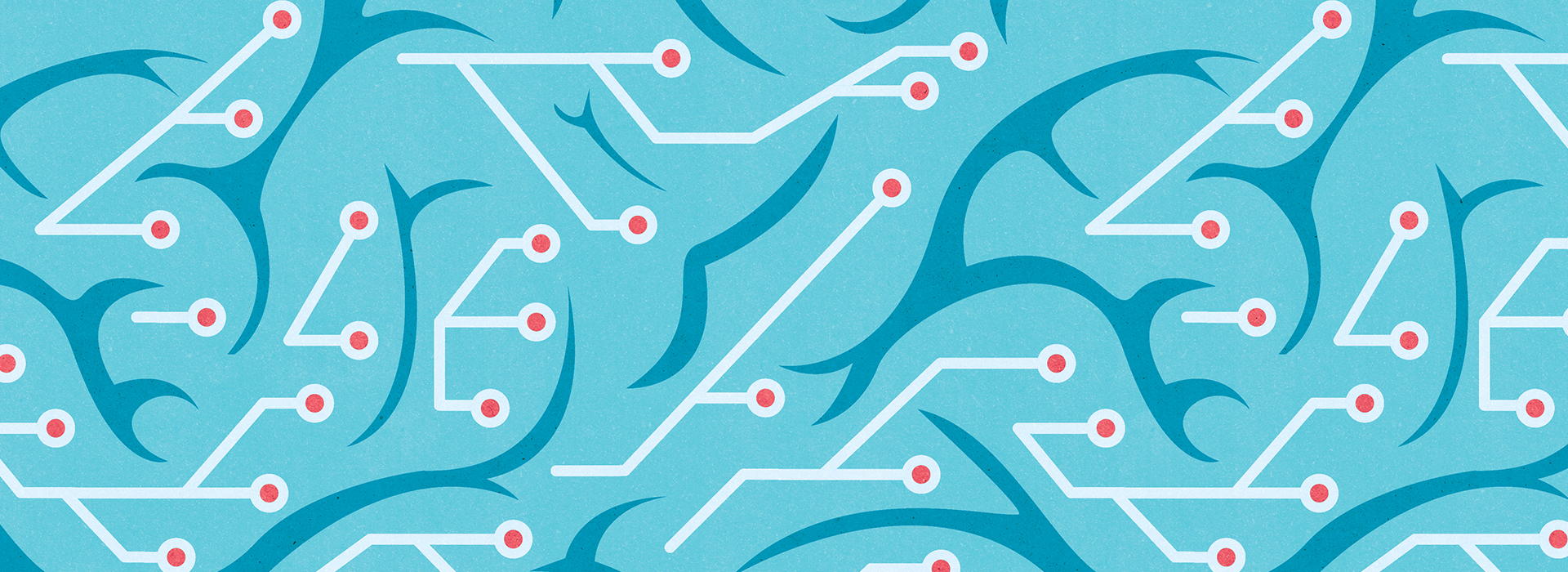By: Krista Davidson
2 Apr, 2019

Blake Richards is one of 46 Canada CIFAR AI Chairs announced as part of the CIFAR Pan-Canadian AI Strategy, the world’s first national AI strategy, supported by the Government of Canada and led by CIFAR. The prestigious program aims to retain, recruit and support top AI research talent in Canada.
The remarkability of human intelligence motivated Canada CIFAR AI Chair Blake Richards to pursue research in neuroscience and artificial intelligence. Richards’ research uses machine learning to help understand how the human brain learns and processes memories.
“Considering how hard it is to program a computer to behave intelligently, and the fact that billions of humans are remarkably intelligent makes the intersection of neuroscience and AI quite magical,” he says.
Richards is a Fellow in the Learning in Machines and Brains program at CIFAR, a Faculty member at Mila — the Quebec AI Institute, and will be joining McGill University’s School of Computer Science and the Department of Neurology and Neurosurgery as an Assistant Professor in August 2019.

Blake Richards
Richards became interested in AI while completing his undergraduate degree at the University of Toronto. Inspired by a love of science fiction and in particular, the 1984 sci-fi novel Neuromancer by American-Canadian writer William Gibson, led Richards to enrol in cognitive science and computer science programs at U of T.
His other motivation — globally renowned AI researcher, Geoff Hinton, currently the VP & Engineering Fellow at Google, Chief Scientific Advisor for the Vector Institute and Emeritus Professor at the University of Toronto. Hinton was instrumental in the discovery of the backpropagation algorithm, a central algorithm to modern machine learning commonly used for training artificial neural networks.
“I found Geoff’s work mesmerizing,” he says. “His approach was really appealing because even though I had become convinced that our own intelligence was quite remarkable, I liked formal mathematical equations, and Geoff’s work was the first time I saw a model with a set of equations that could explain, for example, how you can identify different objects.”
Richards is currently running his own lab at University of Toronto Scarborough, where he is working on a number of research projects aimed at identifying the general principles of intelligence.
“The goal of my lab is to understand the learning algorithms of the brain. The reason we want to understand them is that we’re motivated by the idea that there are general principles of intelligence that apply to any agent, natural or artificial. In the same way that there are a general set of principles that apply to aerodynamics in the movement of airplanes, cars, cheetahs or dogs. Similarly, there are probably general principles for intelligence that apply to humans or other agents.”
According to Richards, learning is a key component to understanding intelligence. Our brains do not have specific neurons that are hardwired to do specific jobs. Instead, we use a distributed representation system meaning that many different neurons can represent many different things.
Neuroscience will have a lot to say about how it is we are able to learn from as few data points as humans, or how to use memories in an intelligent way.”
Understanding human intelligence and how the brain works will help to understand the complexity of neural networks — a framework for understanding how machine algorithms work together to process inputs and carry out tasks.
“If you look at the history of the development of flight, the earliest studies of how to create lift were inspired by birds. Similarly, whenever you’re at ground level and you’re just trying to understand the core problems, one direction to look for inspiration is in nature.
“And I think we’re still at the ground level with AI, and because of that, neuroscience will have a lot to say about how it is we are able to learn from as few data points as humans, or how to use memories in an intelligent way.”
Richards credits the Canada CIFAR AI Chairs Program for recognizing the potential for neuroscience in generating new knowledge of AI. At one time, he remembers having to apply for 23 grants over a three-year period to keep his lab afloat. As a CCAI Chair, Richards can focus more on research and less on administration, as well as support up and coming AI research talent. Bridging the gap between neuroscience and AI is a critical next stop for understanding the complexity of the human brain.
“It’s humbling to be part of this group traditionally reserved for computer scientists,” he says.
He adds: “In 50 years when we’ve gotten to the point where we understand the core principles of intelligence and we understand the brain more, we might see AI in a totally different way.”
Richards has a DPhil (Neuroscience) and a MSc (Neuroscience), both from the University of Oxford, as well as an undergraduate degree in Hon. BSc in Cognitive Science & Artificial Intelligence from the University of Toronto.